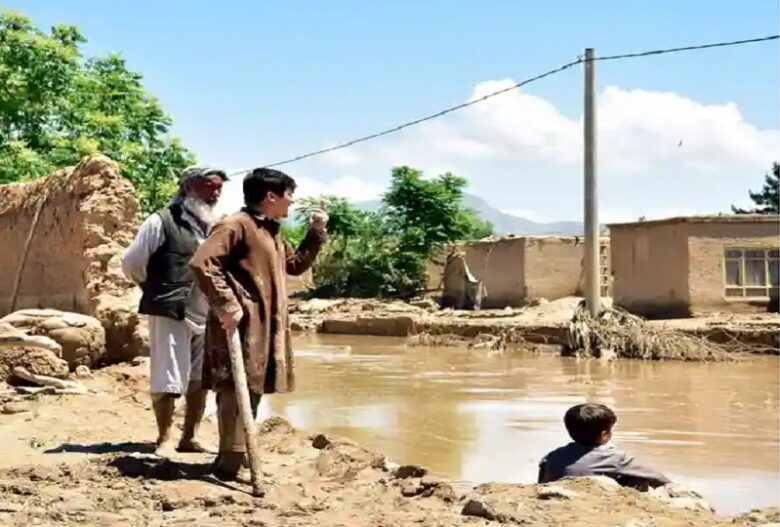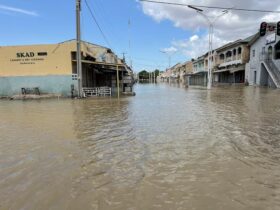The authorities have confirmed that at least 50 people lost their lives and thousands of homes were destroyed in central Afghanistan due to recent heavy rains and flooding.
Torrential seasonal rains triggered flash floods, leading to widespread devastation across the region over the past few weeks.
The ongoing disaster has claimed hundreds of lives, injured thousands, and caused extensive damage to homes and communities throughout Afghanistan.
Dozens were confirmed deceased in Ghor province, as stated by police spokesman Abdul Rahman Badri on Saturday, who anticipates that the casualty count will increase. “These devastating floods have also claimed the lives of thousands of livestock.
They have ravaged hundreds of hectares of farmland, numerous bridges and culverts, and wiped out thousands of trees,” he remarked.
According to initial assessments, numerous individuals remain unaccounted for, noted Abdul Wahid Hamas, spokesman for Ghor’s provincial governor.
Mawlawi Abdul Hai Zaeem, head of Ghor’s information department, revealed that the recent heavy rainfall commenced on Friday, severing many crucial roads to the region.
He further disclosed that “2,000 residences were completely obliterated, 4,000 sustained partial damage and over 2,000 shops were submerged” in the provincial capital, Firoz Koh.
Last week, the Taliban’s Ministry for Refugees reported that the death toll from flooding in northern Afghanistan had climbed to 315, with over 1,600 individuals sustaining injuries.
Afghanistan’s susceptibility to natural disasters has earned it recognition as one of the nations most at risk from climate change by the United Nations.
On Wednesday, an Afghan Air Force helicopter crashed while attempting to retrieve the bodies of individuals who had fallen into a river in Ghor due to “technical issues,” according to the Ministry of Defence. The crash resulted in one fatality and injured 12 others.
Survivors of previous flooding incidents are facing a lack of adequate humanitarian aid, leaving them without shelter, land, or means of livelihood, stated the United Nations World Food Programme (WFP).
The WFP highlighted that much of Baghlan, the hardest-hit province in the north, remains inaccessible by road.
YOU MAY ALSO READ: Man convicted in Malawi for insulting president with TikTok video featuring caricature of president dancing









Got a Question?
Find us on Socials or Contact us and we’ll get back to you as soon as possible.